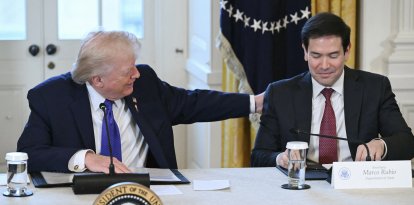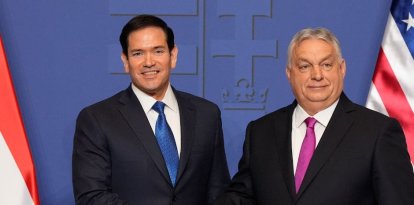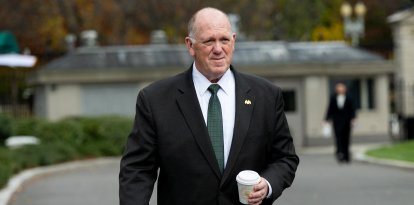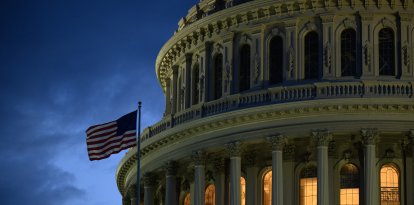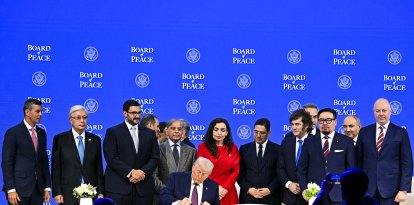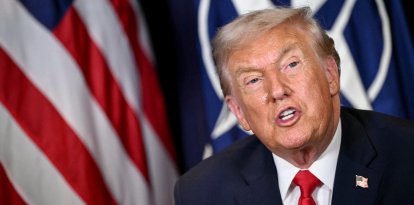Deciphering Trump's trade war: The reasons behind his tariff strategy
The president decided to address immigration and the issue of drugs, including deadly fentanyl, as an emergency situation because of the extraordinary threat they pose to the country.

U.S. President Donald Trump speaks during a press conference.
President Donald Trump has it clear: he wants to tackle two national emergencies and he believes they will can solved with tariffs imposed on the three major trading partners.
Just this week, the White House reported that President Trump decided to address immigration and the drug issue as an extraordinary threat to the country.
In that regard, the White House explained that until the crisis eases, President Trump will implement economic measures to pressure his trade allies on these issues.
"President Trump is taking bold action to hold Mexico, Canada, and China accountable to their promises of halting illegal immigration and stopping poisonous fentanyl and other drugs from flowing into our country," the administration detailed in a statement.
A report in The Telegraph indicated that China plays a significant role in the production of the chemical components of the opioid, which are either shipped to Mexico, where they are converted into fentanyl before being smuggled into the United States, or sent directly to the country in powder form via postal services.
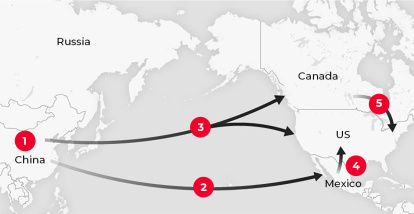
China is largely responsible for the production of the chemical components of fentanyl.
Meanwhile, according to CBP data, in 2024, about 43 pounds of fentanyl were seized at the U.S. northern border. While at the southern border, the number was much higher at 21,100 pounds.
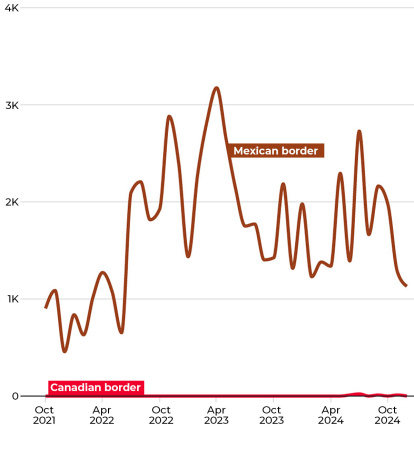
Monthly data as of Jan. 27, 2025.
In the case of Mexico, drug cartels, which rely on precursor chemicals from China, produce most of the fentanyl that reaches U.S. streets.
In that sense, the White House also warned about the complicity of the Mexican government with the criminal organizations:
"Mexican drug trafficking organizations have an intolerable alliance with the government of Mexico. The government of Mexico has afforded safe havens for the cartels to engage in the manufacturing and transportation of dangerous narcotics, which collectively have led to the overdose deaths of hundreds of thousands of American victims. This alliance endangers the national security of the United States, and we must eradicate the influence of these dangerous cartels," the White House highlighted.
Fentanyl: 50 times more potent than heroin
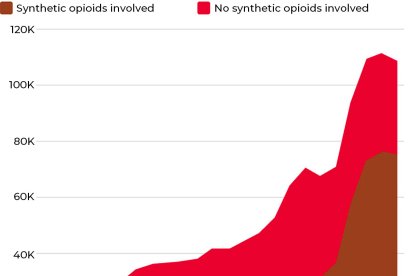
Fentanyl drives rise in drug overdose deaths
In addition, the Trump administration noted that there is also a growing presence of Mexican cartels operating fentanyl and nitazene synthesis laboratories in Canada. "A recent study recognized Canada’s heightened domestic production of fentanyl, and its growing footprint within international narcotics distribution," the Trump administration specified.
The president is also pursuing a major secure border policy to address the immigration crisis in the country. In that sense, he has demanded Canada, Mexico and China to fulfill their promises to stop illegal immigration to the United States.
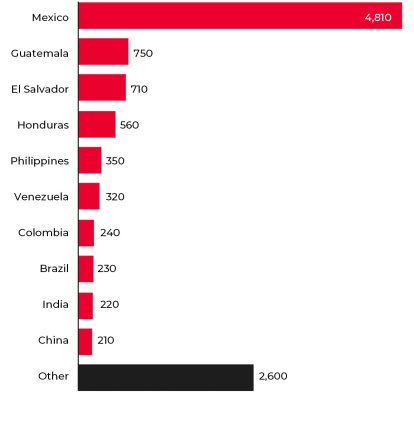
Detentions by nationality
In fiscal year 2024, the Border Patrol apprehended 23,721 people illegally crossing the U.S.-Canada border, representing only 1.5% of total border apprehensions. In contrast, more than 1.5 million people were apprehended crossing the U.S.-Mexico border that same year.
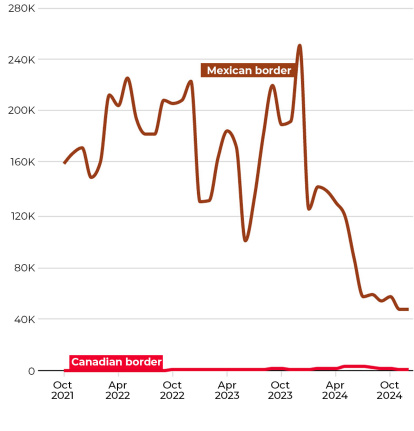
Monthly Border Patrol apprehensions.
Meanwhile, in the debate over fentanyl and immigration, one of the recurring problems for Trump resurfaces: the U.S. trade deficit.
‘They owe us a lot of money, and I’m sure they’re going to pay’
For years, Trump has criticized the massive subsidies given to the country's major trading partners.
"They owe us a lot of money, and I’m sure they’re going to pay," Trump said after signing the tariff orders, referring to these trading partners.
The Telegraph explained that according to analysts, the tariffs could push Canada and Mexico, highly dependent on trade with the United States, into recession.
President Trump referred to Canada and claimed that "it would cease to exist as a viable country" without U.S. financial support.
"Data show that China, the EU, Mexico, Vietnam, Japan, Canada, South Korea and Taiwan are the top countries that export more to the US than they import in exchange," the Telegraph noted.
The government is convinced that its strategy will put the U.S. on the right track. It sees tariffs as a powerful and proven source of leverage to protect the national interest.
"President Trump is using the tools at hand and taking decisive action that puts Americans’ safety and our national security first," the White House punctuated.














